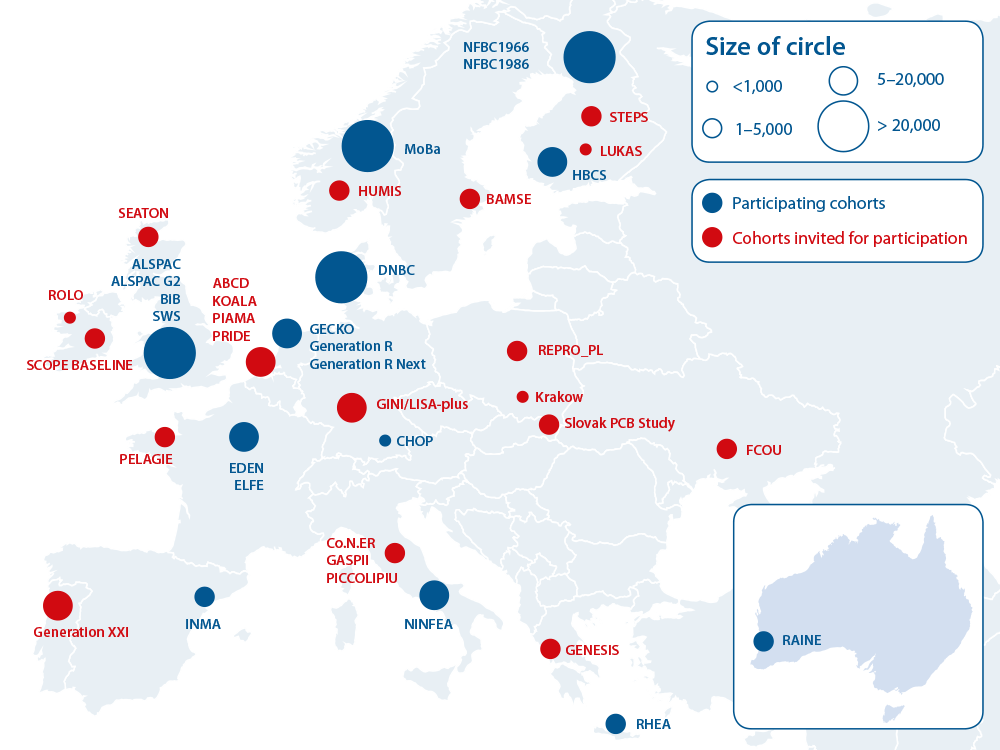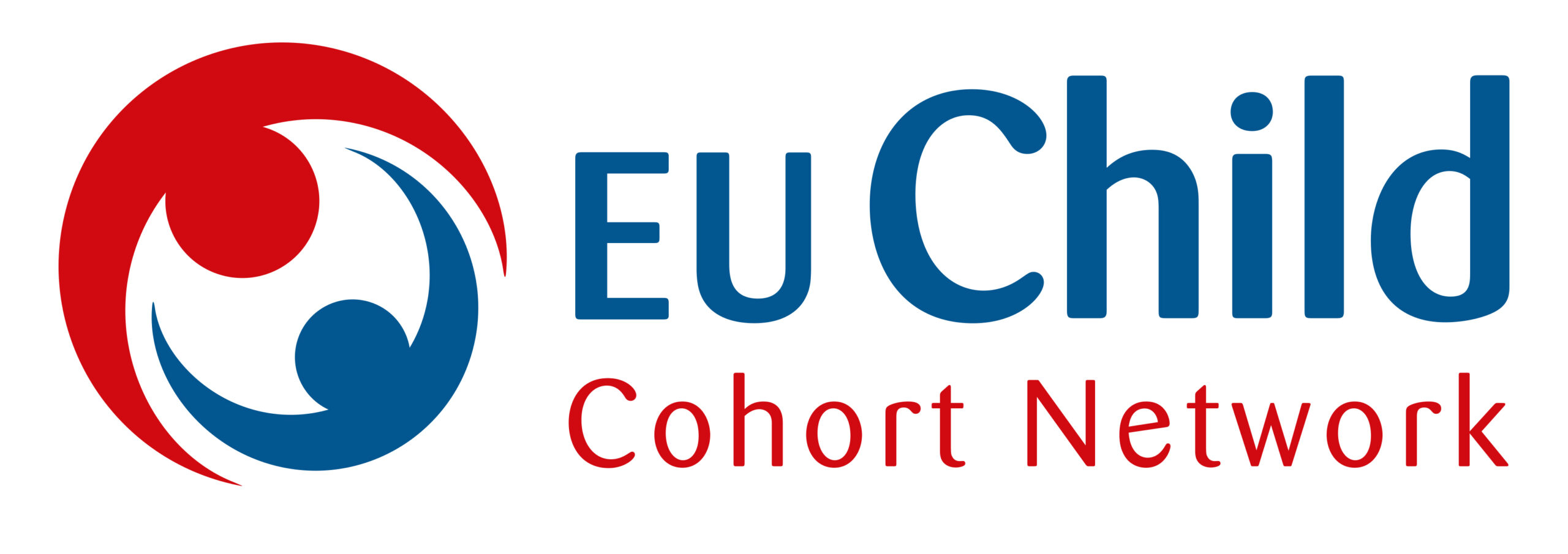The Horizon2020-funded LifeCycle Project (grant agreement 733206) established the EU Child Cohort Network by bringing together nineteen pregnancy and childhood cohorts, together including more than 250,000 children and their parents. A large set of variables has been harmonised and standardized across these cohorts. The harmonized data are kept within each institution and can be accessed by external researchers through a shared federated data analysis platform using the R-based platform DataSHIELD, which takes relevant national and international data regulations into account. The EU Child Cohort Network has an open character. All protocols for data harmonization and setting up the data analysis platform are available here on this website. The EU Child Cohort Network creates great opportunities for researchers to use data from different cohorts, beyond the LifeCycle Project duration. It also provides a novel model for collaborative research in large research infrastructures with individual-level data.

More on the EU Child Cohort Network: A Europe-wide network of cohort studies starting in early life.
Cohort studies starting from pregnancy or childhood give the unique opportunity to relate early-life stressors with variation in development, health and disease throughout the life course. Moreover, advanced analytical approaches used in observational studies can help identify causality and potential for early-life interventions on factors that cannot be easily studied in experimental settings. These factors include socioeconomic circumstances, migration, urban environment as well as lifestyle-related determinants and had been given particular focus in our Lifecycle project. The LifeCycle-project has set up a European pregnancy and childhood cohort, the EU Child Cohort Network, which brings together extensive existing data from more than 250,000 European children and their parents. These cohorts enable studies in multiple generations because of their detailed phenotyping of both parents and children. The network brings together existing successful multidisciplinary cohort studies, which all started before or during pregnancy or in childhood. Together, they span the full life course and contain detailed phenotypical information as well as biological samples. The EU Child Cohort Network optimizes exploitation of more than 40 available cohort resources in Europe and will enable innovative research on identification of novel markers of early-life stressors related to health trajectories throughout the full life cycle. Although LifeCycle partners and their cohorts have taken the initiative for this unique collaboration, the network is open to other partners with population-based cohorts started in early life, specifically those from Eastern and Southern Europe. To ensure that this would be a Europe-wide, open and sustainable network, which exceeds the LifeCycle Project duration, we introduced a data sharing platform taking account of ethical, legal and societal implications. During the LifeCycle project we organized yearly meetings open to all European pregnancy and child cohort researchers and we had a fellowship programme for exchange between these European cohorts.
For more information on the network please see our following papers:
- Jaddoe V.W.V. et al. (2020). The LifeCycle Project-EU Child Cohort Network: a federated analysis infrastructure and harmonized data of more than 250,000 children and parents. Eur J Epidemiol. 35(7): 709-724.
- Pinot de Moira A et al. (2021). The EU Child Cohort Network’s core data: establishing a set of findable, accessible, interoperable and re-usable (FAIR) variables. Eur J Epidemiol 36(5): 565-80.
- Nader JL et al. (2023). Measures of Early-life Behavior and Later Psychopathology in the LifeCycle Project – EU Child Cohort Network: A Cohort Description. J Epidemiol 33(6): 321-31.
